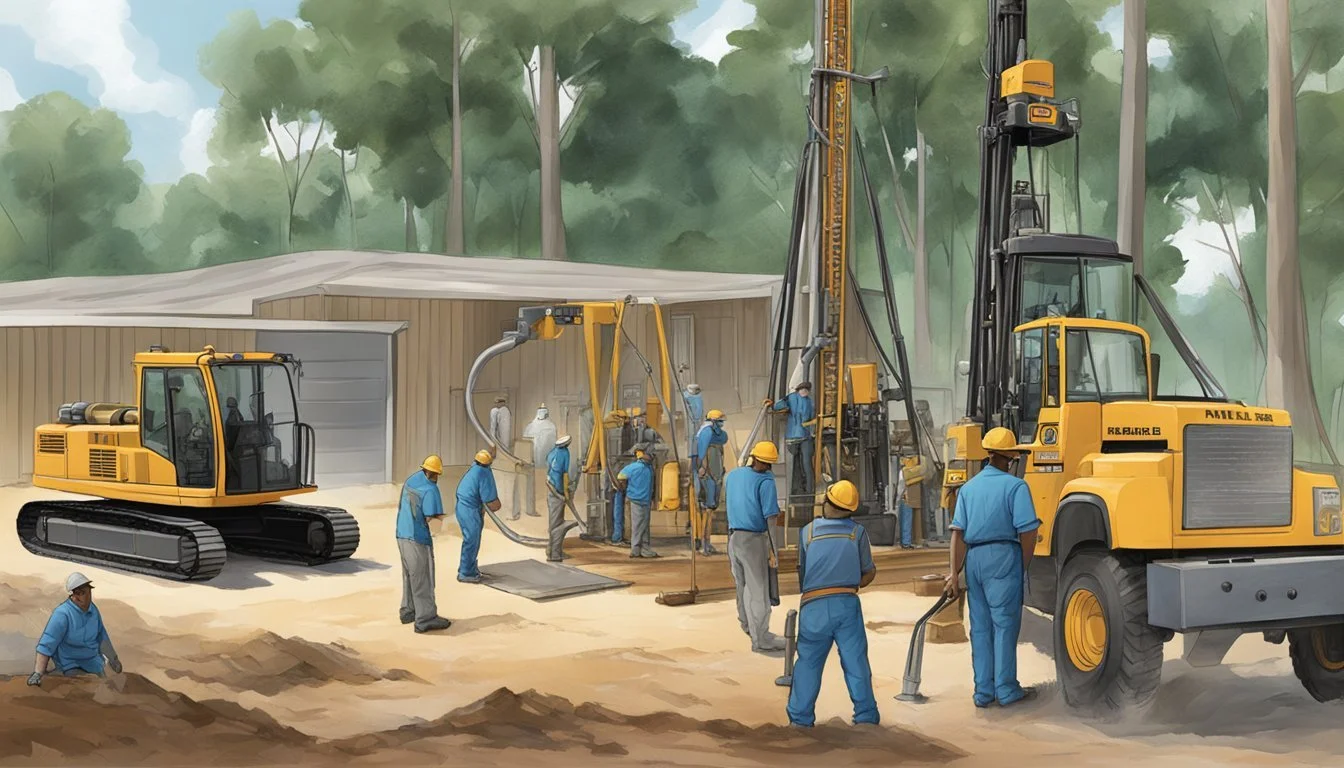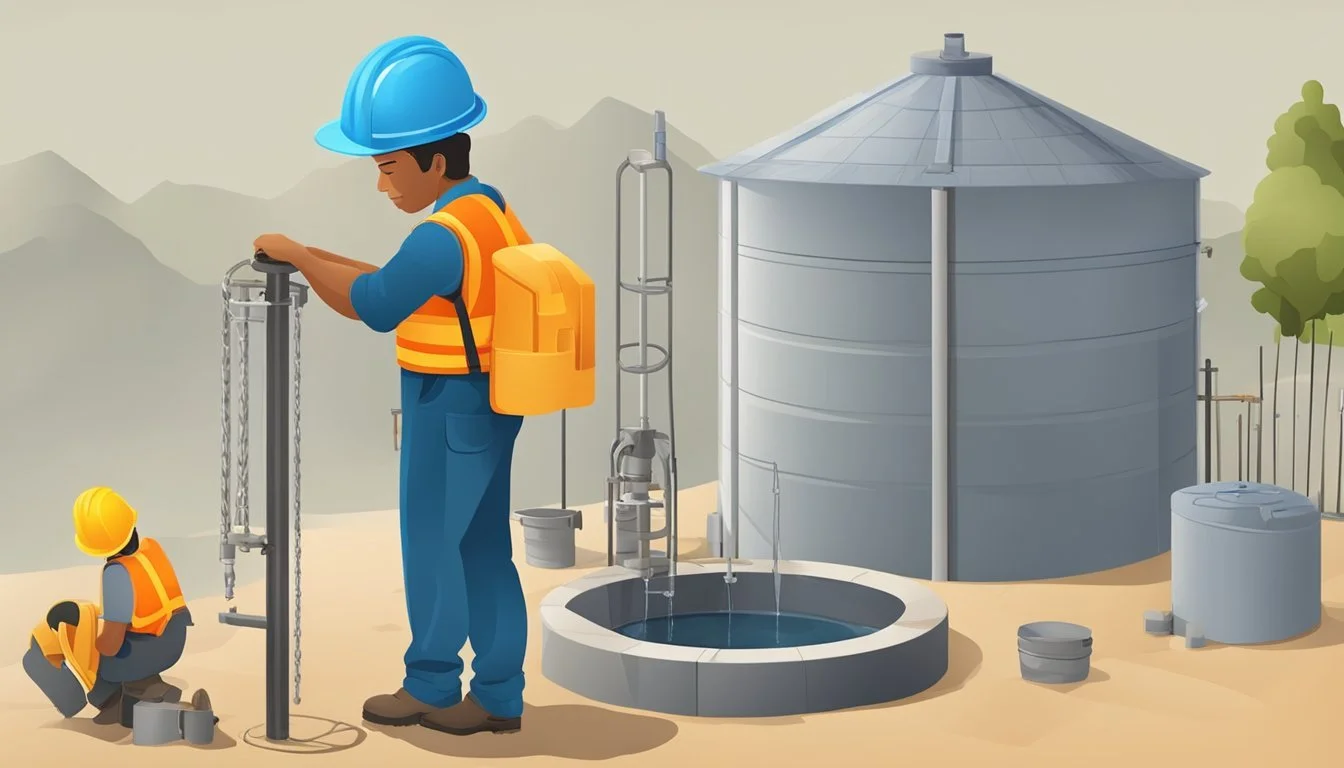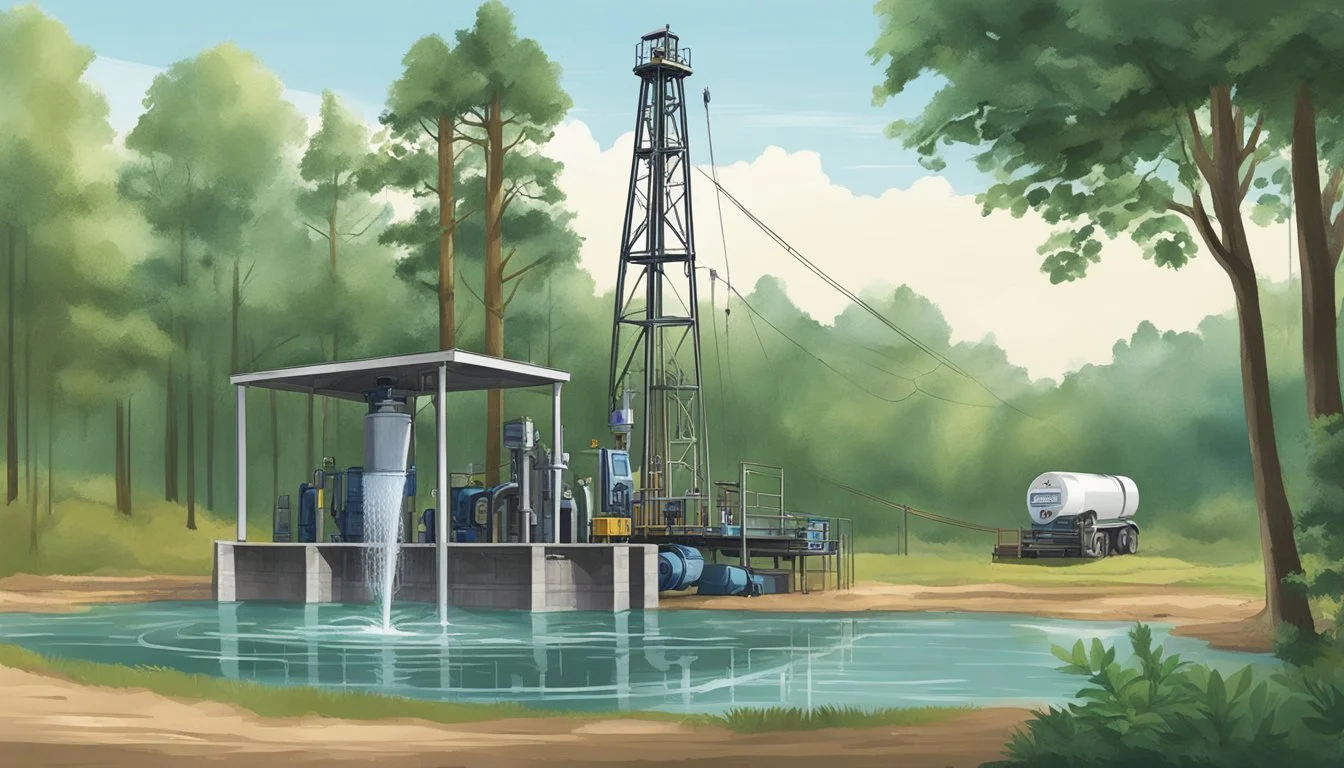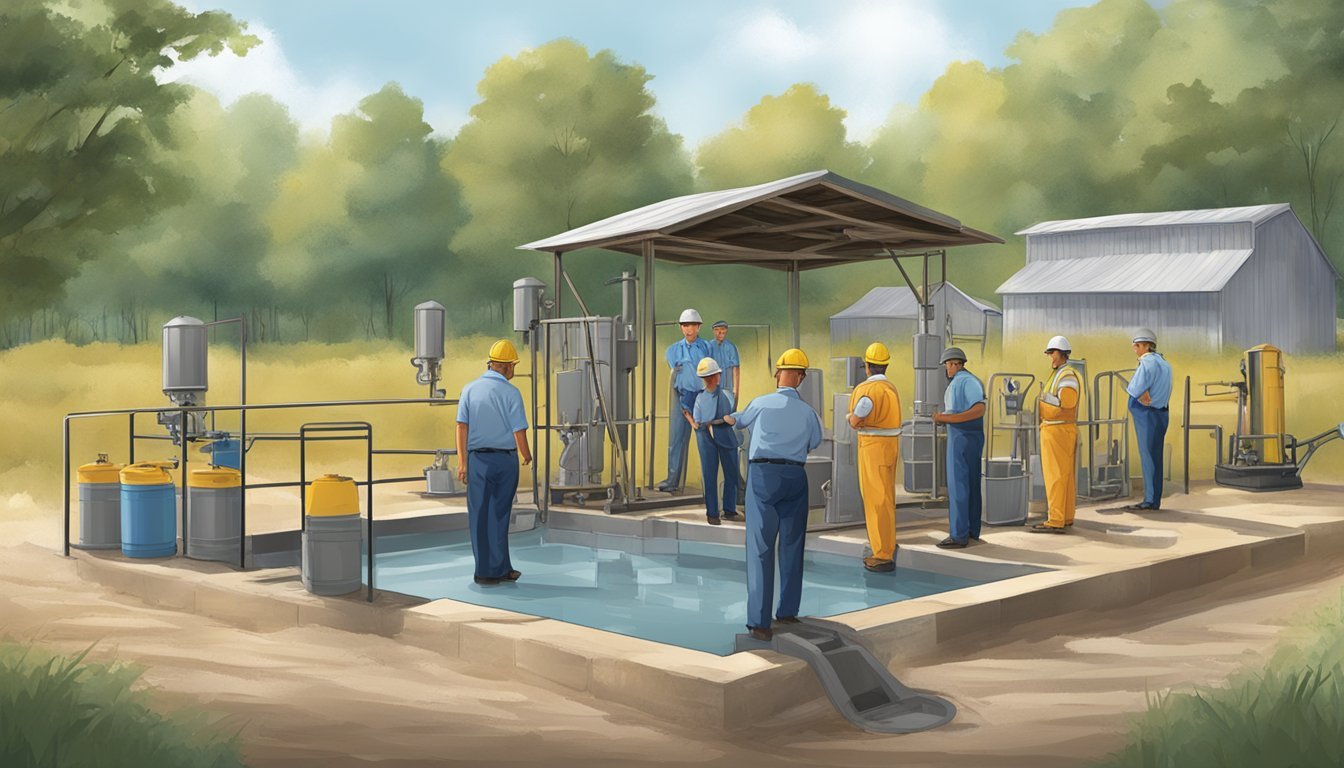Georgia Water Well Regulations
Understanding Compliance for Well Owners
In Georgia, the construction, operation, maintenance, and abandonment of water wells are regulated to protect public health and the state's water resources. The Water Well Standards Act governs the establishment of standards for these procedures, ensuring that water sources remain uncontaminated and safe for use. The act mandates the safe siting of wells, requires notification of intent to drill, and provides guidelines for contractors to follow during the construction process.
Ensuring that wells are properly constructed and maintained is a priority in maintaining the integrity of water systems throughout the state. The Georgia Environmental Protection Division sets forth specific regulations that water well contractors must adhere to. These include rules on the minimum distance between wells and potential pollution sources, requirements for notifying county health departments prior to drilling, and proper chlorination equipment specifications for public water systems.
Compliance with these regulations is reinforced through the establishment of penalties for violations. Contractors found not adhering to the mandated standards for wells and boreholes are subject to sanctions, ensuring that the rules are taken seriously and that the water wells are constructed to preserve the public's health and the environmental standards set forth by the state.
Legal Framework for Water Well Regulations
The state of Georgia enforces a comprehensive legal framework to govern water well construction, operation, and abandonment, which aims to protect public health and preserve water resources. This framework includes various statutes, regulations, and oversight duties administered by the Environmental Protection Division.
Georgia Water Well Standards Act
The Georgia Water Well Standards Act establishes criteria for well placement, construction, and maintenance. It ensures that the wells operate effectively while safeguarding the state’s water resources.
Georgia Safe Drinking Water Act of 1977
The Georgia Safe Drinking Water Act of 1977 sets forth standards for the quality of drinking water. It aligns with federal regulations to ensure that all public water systems provide safe and reliable drinking water.
O.C.G.A Regulations
O.C.G.A title 12, chapter 5, article 3, part 3, systematically lays out the state's regulations regarding water wells. These regulations are designed to manage and protect groundwater resources in Georgia.
Environmental Protection Division Oversight
The Environmental Protection Division monitors compliance with water well standards and enforces regulations to prevent contamination of the state's water resources. They provide guidance and knowledge on the proper construction and maintenance of water wells.
Certification Requirements for Well Drillers
Regulations prescribe strict certification requirements for well drillers in Georgia. Certification ensures drillers are knowledgeable of current laws and capable of constructing wells to avoid any hazard to public health or water quality.
Licensing Processes
Licensing processes in Georgia are in place to regulate individuals and companies that drill wells. They must comply with state regulations and are periodically reviewed to maintain high standards in water well construction and operation.
Proposed Rule Amendments
When there are proposed rule amendments, they undergo a rigorous review process. This process includes evaluation of environmental impact and alignment with existing water resource goals.
Public Notice and Hearing Procedures
Public notice and hearing procedures provide transparency in the regulatory process. Proposed changes to water well regulations are shared with the public, allowing for feedback and concerns to be raised and considered by the state government.
By maintaining a robust legal framework for water well regulations, the state of Georgia ensures the preservation and quality of its water resources. With the strategic oversight of the Environmental Protection Division, along with mandating certification and licensing for well drillers, Georgia prioritizes public health and the integrity of its environmental assets.
Water Well Construction and Maintenance
In Georgia, strict regulations are in place to ensure the proper construction, maintenance, and closure of water wells. These measures are critical to protect the public health and the state's water resources.
Well Construction Standards
Under the Georgia Water Well Standards Act, well construction must adhere to specific criteria to prevent contamination. Licensed water well contractors are required to construct wells at a safe distance from potential pollutants and in compliance with the flow direction of the groundwater. The county health department must be notified prior to the drilling process.
Key aspects include:
Site selection away from pollutants
Notification to local health authorities before drilling
Mandatory use of licensed contractors
Maintenance Procedures
Regular maintenance is crucial for the operation of water wells. Licensed contractors must be employed for this purpose, ensuring that wells function effectively and remain free from contaminants. The Department of Public Health oversees the enforcement of these procedures.
Maintenance involves:
Inspection and repairs to prevent system failures
Cleaning and treatment to maintain water purity
Abandoned Well Regulations
The closure of abandoned wells must be conducted in a manner that safeguards against any potential hazards. The Environmental Protection Division provides guidelines for the proper sealing of these wells to prevent accidents and groundwater contamination.
Closure process includes:
Thorough cleaning and disinfection
Sealing with approved materials to prevent entry of pollutants
Seepage Pit and Cesspool Oversight
Seepage pits and cesspools are subject to regulation to prevent water contamination. The Board of Natural Resources ensures that these systems are correctly located, constructed, and maintained.
Regulatory oversight aims to:
Monitor the structural integrity of pits and cesspools
Enforce guidelines for siting and construction
Disinfection and Water Quality Control
Ensuring the sanitary condition of water wells is a priority, which includes regular disinfection and water quality control measures. Protocols are established for treating wells and testing water to detect any microbial or chemical pollutants.
Water quality control measures include:
Periodic water testing for contaminants
Treatment protocols to address water quality issues
Water Well Design and Engineering Criteria
In the state of Georgia, water well construction is subject to stringent standards to ensure the sustainability and safety of groundwater resources. These regulations detail the technical specifications for components such as casing and liner pipes, and dictate the procedures for grouting and borehole construction.
Casing and Liner Pipe Specifications
Casing and liner pipes are essential in preventing well collapse and protecting groundwater from contamination. In Georgia, these must meet specific diameter and wall thickness requirements in relation to the well depth and intended use. The materials should be durable, such as stainless steel or PVC, to withstand subsurface conditions. Furthermore, all casing and liner pipe joints need to be robust to prevent leaks, with specific Professional Engineer (PE) and Professional Hydrologist (PH) approvals to ensure integrity.
Grouting Techniques
Proper grouting is crucial for sealing the annular space between the casing and the drilled borehole. In Georgia, grouting must form a continuous seal to prevent surface contaminants from infiltrating the groundwater. Techniques can vary from the use of neat cement to thermally enhanced grouts, which are selected based on site conditions and the type of casing material used.
Borehole Construction
Borehole construction is a critical phase where adherence to Georgia's standards ensures not only the structural stability of the well but also the protection of groundwater. It involves precise drilling methods that prevent borehole collapse and minimize the risk of contaminant ingress. The size and depth of boreholes are determined based on the intended use of the water supply, with careful consideration given to the selection of drilling techniques that align with the hydrogeological conditions of the site.
Health and Environmental Considerations
Ensuring the health and safety of the public and the environment, Georgia's water well regulations encompass stringent management of pollutants, oversight of waste systems, and protective measures against water contamination due to runoff and flooding. These regulations are vital for maintaining the integrity of public water systems.
Pollutants and Hazardous Materials Management
In Georgia, the handling of pollutants and hazardous materials is tightly regulated to prevent contamination of groundwater. The Water Well Standards set forth by the Environmental Protection Division outlines that proper siting and construction of wells are critical to prevent pollutants from entering the water supply.
Septic Tank and Sewer Line Regulations
Regulatory measures for septic tanks and sewer lines help safeguard Georgia's groundwater from waste contamination. Effective separation and the correct functioning of septic systems are necessary, as mandated by the Georgia Department of Public Health, to mitigate the risk of sewerage leaching into the water table.
Surface Runoff and Flooding Control
To control surface runoff and mitigate the risks associated with flooding, the state implements comprehensive planning and construction standards. These aim to manage runoff in a manner that prevents pollution of the public water supply, also allowing for necessary variances in specific situations as stated in the Water Quality Control rules.
Public Water System Protection
The protection of public water systems is of paramount importance. The Minimum Standards for Public Water Systems detail the requirements for source water assessment and quality control, ensuring that the public water supply remains uncontaminated and safe for consumption.
Water Well Operation Standards
Water well operation in Georgia adheres to stringent regulations designed to ensure that water-bearing formations are accessed correctly and that the integrity of public and private water supplies is maintained through the proper use of well screens, gravel packs, and ongoing monitoring.
Water-Bearing Formations Access
Gaining access to water-bearing formations requires adherence to established well standards that dictate the appropriate siting and construction methods. It is paramount that these formations are accessed in a manner that prevents contamination and depletion of the water resources. The Environmental Protection Division provides guidance on these standards.
Well Screen and Gravel Pack Utilization
Well Screen: A critical component of well construction, the well screen is installed to support the borehole walls while allowing water to enter the well without sand or sediment.
Gravel Pack: Surrounding the well screen, a gravel pack is used to filter out finer particles that may be present in the water. The correct installation of a well screen and gravel pack is integral to the public water supply system's functionality and longevity.
Irrigation and Industrial Wells Monitoring
For irrigation wells and industrial wells, regular monitoring is essential to maintain operational standards and to ensure sustainable water use. Monitoring not only involves the physical condition of the well and its components but also includes the quality and quantity of the water extracted. Industrial wells, in particular, must meet additional criteria for water quality due to their potential impact on public health and the environment.
County and State Specific Procedures
In Georgia, regulations governing water wells are meticulously outlined to safeguard public health and ensure the protection of water resources. These regulations require strict adherence to standards for siting, construction, maintenance, and abandonment of domestic wells.
Domestic Well Guidelines
When constructing a domestic well, a specific set of standards must be followed to prevent water contamination and protect the water resources. The Georgia Environmental Protection Division mandates that wells be located away from potential pollutants, considering factors such as groundwater flow. Details of these standards facilitate the safe operation of domestic wells while maintaining public health.
County Health Department Collaboration
For each well construction, there is a mandatory protocol to engage with the local County Health Department. They must be notified before drilling commences. This collaboration ensures that the well is compliant with health and safety standards, including considerations for bacteria levels and proximity to absorption fields.
State Environmental Protection Compliance
Compliance with the Environmental Protection Division of Georgia goes beyond the initial construction phase. Well operations are to be executed under state-specific water quality standards, which encompass criteria for bacteria, pH, temperature, and other measures of purity. These standards are in place to assure that water from domestic wells remains safe for consumption at all times.
In summary, from the initial planning stage through ongoing operation, both state and county entities play critical roles in ensuring that the wells are constructed and maintained according to the highest standards of public health and environmental safety.
Frequently Asked Questions
Navigating the intricacies of water well regulations in Georgia can be complex. This section aims to address common inquiries with concise, authoritative information.
What are the current water well construction standards in Georgia?
Georgia follows strict standards for well construction to ensure water quality and environmental safety. These standards include proper location, construction, and maintenance protocols. Detailed regulations are managed by the Environmental Protection Division.
How can I access the Georgia water well database?
The Georgia Department of Natural Resources maintains a database of water wells. Information on how to access this database can typically be found through contacting the Environmental Health Section of the Georgia Department of Public Health.
What are the legal requirements for obtaining a well drilling license in Georgia?
Obtaining a well drilling license in Georgia requires meeting the qualifications established by the Water Well Standards Advisory Council, which includes the certification of pump installers and licensing of water well drillers.
What are the minimum property setback requirements for water wells in Georgia?
In Georgia, the well should be placed as far from potential sources of pollutants as possible, considering the general layout of the premises. Additionally, Georgia Department of Public Health dictates that wells must not be located in flood-prone areas unless properly safeguarded.
What are the typical costs associated with drilling a new well in Georgia?
The cost to drill a new well can vary based on factors such as depth and location. Prospective well owners should obtain estimates from licensed contractors to ensure accurate financial planning.
How do I determine my water rights when drilling a well in Georgia?
Water rights are determined by local and state regulations, which dictate the allocation and use of groundwater. These rights can be complex, so consulting with Georgia's Environmental Protection Division or legal professionals knowledgeable in state water laws is advisable.








